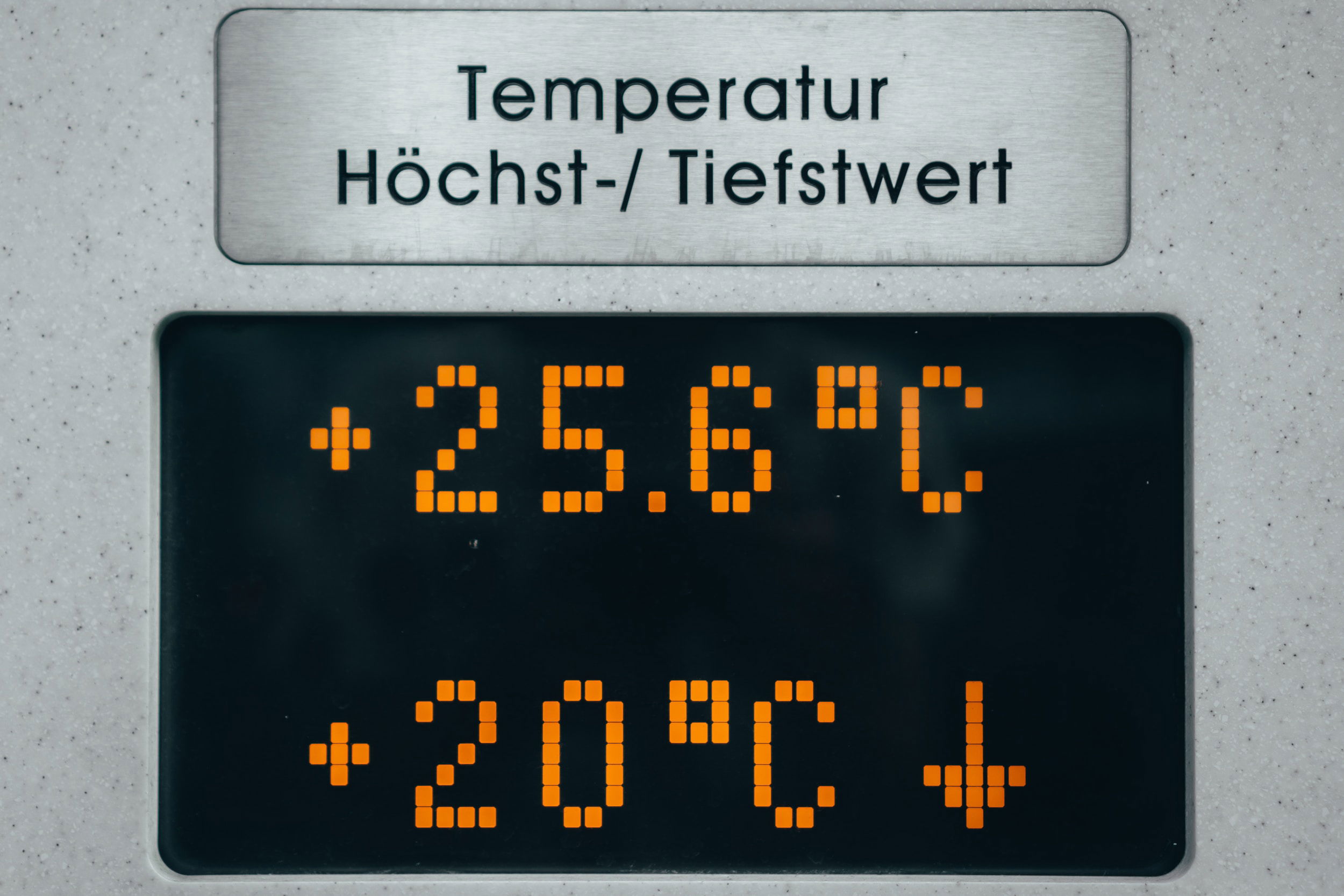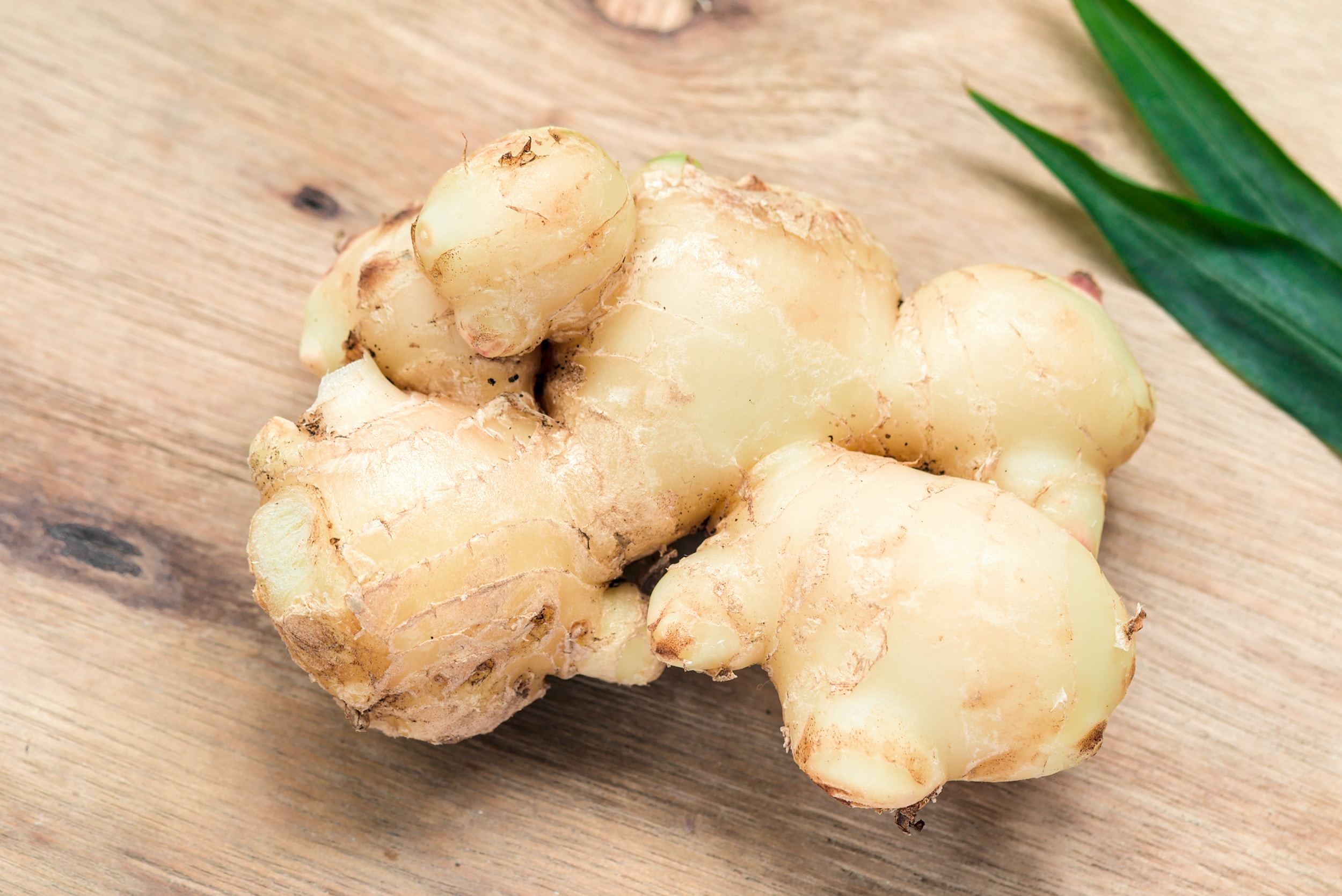Understanding Shelf Life and Factors Affecting Fresh Ginger
Fresh ginger is a staple ingredient in many kitchens, adding a unique and powerful flavor to a variety of dishes. Whether used in marinades, soups, stir-fries, or baking, ginger has a variety of culinary applications that make it a versatile ingredient.
However, like many fresh foods, ginger has a limited shelf life, and improper storage can result in spoilage and waste. In this article, we will explore the science behind ginger's shelf life, identify the factors that affect its freshness, and provide practical tips on how to prolong its shelf life and reduce waste. We will also cover the risks associated with using expired ginger and offer safe ways to repurpose it.

Introduction to Fresh Ginger and its Importance in Cooking
Ginger is a versatile and flavorful ingredient used in a variety of cuisines around the world. It is a root vegetable that is known for its spicy and aromatic flavor, and it can be used fresh, dried or powdered. Fresh ginger, in particular, is a popular ingredient in many recipes, ranging from sweet treats to savory dishes. It's an essential ingredient in Asian cuisine and is used in many beverages like tea and cocktails.
What is Fresh Ginger and its Culinary Applications
Fresh ginger is the root of the ginger plant, scientifically known as Zingiber officinale. It has a pungent and slightly sweet flavor, and a distinct aroma. Fresh ginger can be used in a variety of dishes, including soups, sauces, marinades, stir-fries, and baked goods. It pairs well with chicken, fish, vegetables, and fruits. Ginger can also be added to beverages to enhance the flavor, such as ginger tea, ginger ale or ginger beer.
Understanding Shelf Life and Factors Affecting Fresh Ginger
The Science Behind Ginger's Shelf Life
Like any perishable produce, fresh ginger has a limited shelf life. After a period of time, its quality begins to decline and it becomes less flavorful and less aromatic. The shelf life of fresh ginger is largely determined by its moisture content and microbial activity.
Factors Affecting Ginger's Shelf Life
The shelf life of fresh ginger can be influenced by several factors. Moisture, temperature, and exposure to air can all affect its quality and how long it remains fresh. Ginger that is stored in high-humidity environments or that has a high moisture content will spoil more quickly. Further, exposure to air can cause ginger to oxidize and degrade more quickly.

Determining Freshness of Ginger: Signs to Look For
Visual and Physical Indicators of Freshness
The freshness of ginger can be determined by looking for visual clues that it's still fresh. The ginger should be firm, smooth, and have a thin skin that is easy to peel. If the ginger has soft spots or is wrinkled or dried out, it may have passed its prime. Additionally, if the ginger has any mold or discoloration, it should be discarded.
Smelling and Tasting Ginger to Check for Freshness
Another way to determine the freshness of ginger is by smelling and tasting it. Fresh ginger should have a strong and pungent aroma and will have a slightly spicy and zesty flavor. If the ginger has lost its aroma or flavor, it may have gone bad.

Best Practices for Storing Fresh Ginger to Prolong Shelf Life
Storage Temperature and Humidity Levels
To prolong the shelf life of fresh ginger, it should be stored in a cool and dry place. Ideally, ginger should be stored at temperatures between 55-60°F (12-15°C) and relative humidity of 70-75%. Refrigerating ginger can actually cause it to mold more quickly, so it's best to store it in a cool, dark, and dry place in your pantry.
Using Containers and Wrapping Techniques
To protect fresh ginger from exposure to air and moisture, wrap it tightly in a paper towel or a paper bag before storing it. Alternatively, store it in an airtight container or plastic bag with the excess air removed, and place it in the crisper drawer in your refrigerator. This will help to keep the ginger fresh for up to three weeks.
By following these simple tips, you can enjoy fresh ginger for longer periods, and add its unique flavor to your favorite dishes. Remember: the fresher the ginger, the more aromatic and flavorful it will be in your cooking!

How to Freeze Fresh Ginger for Optimal Shelf Life
Fresh ginger is a versatile ingredient that adds a zesty and unique flavor to dishes. However, keeping it fresh for longer periods can be a challenge. One of the best ways to extend ginger's shelf life is by freezing it. Here are some tips on how to do it:
Freezing Techniques and Precautions
To freeze fresh ginger, start by washing and peeling it. Cut it into small pieces or grate it, depending on your preference. Place the ginger in a freezer bag, making sure to remove any excess air before sealing the bag. Label the bag with the date and contents, and place it in the freezer.
When freezing ginger, it's important to note that it can become quite hard and difficult to grate or chop once thawed. To avoid this, consider pre-grating or pre-chopping the ginger and then freezing it in portions.
Thawing Frozen Ginger and Its Effects on Flavor and Texture
When ready to use frozen ginger, remove it from the freezer, and let it thaw at room temperature for 10-15 minutes. Alternatively, you can grate or chop the frozen ginger without thawing it first.
It's important to note that frozen ginger may have a slightly different texture and flavor compared to fresh ginger. However, this difference is often negligible, especially for recipes where ginger is used as a seasoning rather than a prominent flavor.

Using Expired Ginger: Risks and Precautions to Take
It can be frustrating to find out that your fresh ginger has expired. However, using expired ginger can be risky, as it may lead to potential health problems. Here are some things to keep in mind when dealing with expired ginger:
Types of Spoilage and Risks of Consumption
There are a few ways in which ginger can spoil. One common sign of ginger spoilage is a change in texture, such as sponginess or sliminess. Ginger can also develop mold, which can cause allergic reactions or digestive issues.
Consuming spoiled ginger can lead to symptoms such as nausea, vomiting, and diarrhea. In severe cases, it can even lead to food poisoning.
Safe Ways to Use Expired Ginger
If you're not sure whether your ginger has expired, it's best to err on the side of caution and discard it. However, if you want to try salvaging it, you can cut off the affected parts and use the remaining ginger in small amounts.
Alternatively, you can use expired ginger for non-food purposes, such as in beauty treatments or as a natural air freshener.

Tips for Reducing Ginger Waste and Maximizing Shelf Life
To make the most out of your ginger and reduce waste, here are some tips to keep in mind:
Calculating the Right Ginger Amount to Use
When cooking with ginger, it's important to use the right amount to avoid waste. A general rule of thumb is to use about one teaspoon of fresh ginger for every inch of ginger root.
Repurposing Ginger Scraps and Leftovers
Instead of throwing away ginger scraps and leftovers, consider repurposing them. Ginger peels can be used to make tea, while leftover grated ginger can be added to dressings, marinades, or smoothies.

Conclusion: Maintaining the Quality and Flavor of Fresh Ginger Over Time
Fresh ginger is a flavorful and healthy ingredient that can enhance various dishes. However, it can be challenging to keep it fresh for a long time. The key to maintaining ginger's quality and flavor over time is by freezing it, using it before it expires, and reducing waste. By following these tips, you'll be able to make the most out of your fresh ginger and take your cooking to the next level.
Summarizing the Key Points for Prolonging Ginger's Shelf Life
To recap, here are some key points to keep in mind when it comes to extending the shelf life of fresh ginger:
- Freeze ginger in small portions to avoid waste and make it easier to use.
- Thaw frozen ginger at room temperature for 10-15 minutes before using it.
- Beware of signs of ginger spoilage, such as sponginess, sliminess, or mold.
- Use ginger in small amounts to avoid waste and prevent spoilage.
- Repurpose ginger scraps and leftovers to save money and reduce waste.
In conclusion, ginger is a flavorful and versatile ingredient that can add depth and complexity to any dish. By understanding its shelf life and taking proper storage precautions, you can extend its freshness and reduce waste. Remember to check for signs of spoilage and consider freezing excess ginger as a backup. With these tips in mind, you can enjoy the full potential of fresh ginger and elevate your cooking to the next level.

FAQs
How can I tell if ginger has gone bad?
Visual indicators of spoiled ginger include mold growth, dark spots, and a slimy texture. If the ginger smells off or has a sour taste, it has likely gone bad.
Can I freeze fresh ginger?
Yes, freezing fresh ginger is an excellent way to prolong its shelf life. Simply peel and chop the ginger into small pieces, place them into an airtight container or freezer bag, and store them in the freezer for up to six months.
What is the best way to store fresh ginger?
Fresh ginger should be stored in a cool, dark place with moderate humidity levels, such as a pantry or root cellar. Wrapping it in paper towels or placing it in a paper bag can help absorb excess moisture and prevent mold growth.
Can I use expired ginger?
While ginger that has gone bad can pose health risks and should be thrown away, ginger that has passed its best-by date can still be safely consumed if it looks, smells, and tastes okay. However, its potency and flavor may have diminished over time.



